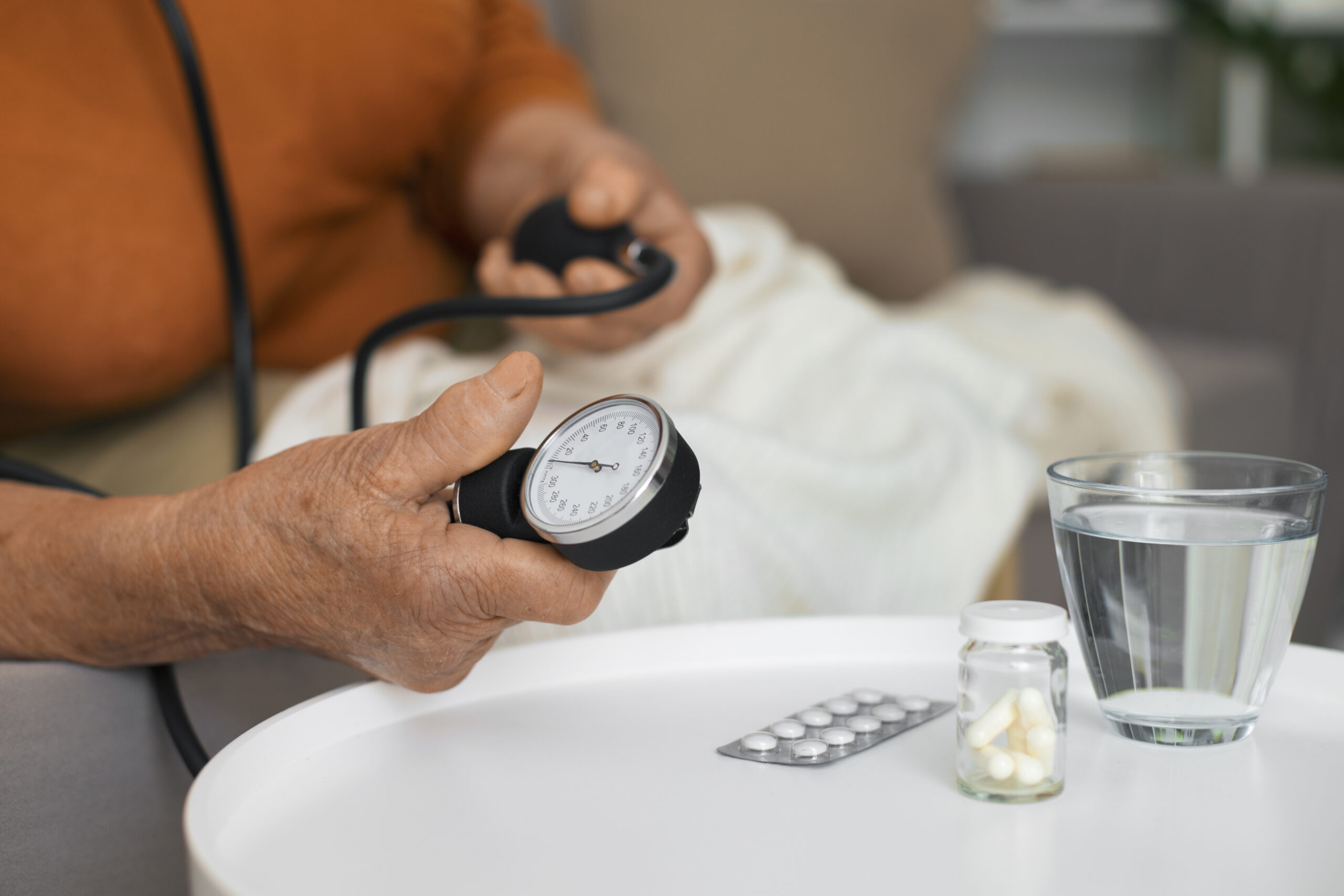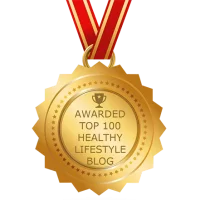High blood pressure, often called the “silent killer,” rarely stems from a single cause. Instead, it’s often the cumulative result of small, overlooked daily habits that cause the body’s cardiovascular system to tighten, day after day.
While genetics and sodium intake play a role, modern research confirms that making small, consistent adjustments to your lifestyle can be as effective as medication for many people.
As Dr. Cynthia Thaik, an integrative cardiologist, notes, the heart is a mirror of your body’s overall state—a reflection of the “mind-body-spirit connection.” Hypertension is essentially the “biology of resistance,” a physical tightening that builds over time.
Originally reported by Sheramy Tsai for The Epoch Times: Read the full original article here: 7 Everyday Habits That Raise Blood Pressure—and How to Reverse Them.
Here are seven everyday habits that may be silently pushing your blood pressure up, and how you can reverse them to restore balance.
1. Chronic Sunlight Deprivation
Most of us spend about 90% of our time indoors, and when we are outside, we often cover up. We’ve evolved to need natural light, and modern life keeps us chronically under-exposed.
- The Impact: Studies show that adults who practice multiple sun-protective habits have a significantly higher risk of hypertension. The reason is simple: sunlight triggers a critical biological mechanism in the skin.
- The Mechanism: Natural light causes the release of nitric oxide from stores in the skin. Nitric oxide is a powerful vasodilator, meaning it relaxes and widens blood vessels, which directly lowers blood pressure and reduces the risk of strokes and heart attacks. This benefit is entirely independent of Vitamin D and cannot be replaced by supplements.
The Daily Fix:
Aim for 10 to 30 minutes of natural light exposure during morning or midday hours (10 a.m. to 3 p.m.). This isn’t about tanning; it’s about balance. Even a brief walk or sitting near an open window can help restore what chronic indoor life takes away.
2. An Inconsistent Sleep Schedule
The body’s internal clock, or circadian rhythm, craves consistency. When your bedtimes and wake times vary wildly, especially on weekends, you create internal chaos that impacts your blood pressure.
- The Impact: Irregular sleep habits, even when total sleep time is adequate, can increase the likelihood of high blood pressure by up to 30%. This inconsistency jolts your cortisol levels, keeping blood pressure elevated long after you’ve woken up.
- The Hidden Threat: Sleep apnea is a major driver of resistant hypertension, affecting nearly half of those with difficult-to-control blood pressure. Proper treatment (like a CPAP device) can lead to significant drops in systolic readings (5 to 10 points).
The Daily Fix:
- Set a Consistent Rhythm: Go to bed and wake up at the same time every day, including Saturdays and Sundays.
- Anchor Your Clock: Get sunlight exposure (as mentioned above) within the first hour of waking. This helps anchor your internal clock for better night time sleep.
- Create a Sanctuary: Dim lights and keep all devices out of the bedroom an hour before your scheduled bedtime.
3. Too Much Sitting (Sedentary Living)
Stillness physically strains your cardiovascular system. Long bouts of uninterrupted sitting cause blood to pool in the legs and increase the volatility of your blood pressure from moment to moment.
- The Impact: Prolonged sitting is linked to hidden volatility in blood pressure, increasing the risk of hypertension and heart disease over time. As Dr. Thaik explains, “When energy or movement is blocked, the body mirrors that resistance.”
The Daily Fix:
Make movement mandatory. Stand, stretch, or squat for a few minutes every half hour. Simple activities like climbing a few stairs or taking a quick loop around your office or living room help:
- Restore healthy blood flow.
- Release nitric oxide, which relaxes vessels.
- Steady overall blood pressure.
4. Chronic Dehydration
Movement keeps blood circulating, but water keeps it fluid. Most people are chronically under-hydrated, which forces the heart to work much harder.
- The Impact: Even mild dehydration shrinks plasma volume and triggers vasoconstriction (vessel tightening) as a built-in reflex to maintain pressure. Over time, this constant strain becomes the body’s “new normal.”
- The Hidden Factor: According to Dr. Thaik, “Lack of water causes vasoconstriction, inflammation, and salt retention—all of which raise blood pressure.” Consistent hydration helps the kidneys effectively clear sodium and keeps blood vessels flexible and supple.
The Daily Fix:
Don’t just cover what you lose, aim for what your body needs to thrive. A good rule of thumb is to target half your body weight in ounces of water daily, increasing intake if you’re active or in hot weather.
5. Potassium Deficiency
If hydration is about volume, potassium is about relaxation. Potassium is a mineral that helps vessels relax and counteract the effects of sodium.
- The Imbalance: The modern diet—rich in sodium and low in potassium—has reversed the natural balance our bodies evolved with. Low potassium tells the kidneys to hoard sodium (the “potassium switch”), driving blood pressure up as if the body is preparing for famine.
- The Processed Food Link: Packaged snacks, frozen meals, and sweetened drinks overload the body with sodium and sugar while stripping away essential minerals.
The Daily Fix:
Supplements rarely contain enough potassium to make a difference. The best approach is a diet rich in whole foods, such as the DASH (Dietary Approaches to Stop Hypertension) or Mediterranean-style diet.
- Prioritize fruits, vegetables, beans, lentils, and yogurt.
- Cook meals at home using whole ingredients to restore the critical sodium-potassium balance.
- Make small swaps: choose a piece of fruit over a processed snack bar, or sparkling water over soda.
6. Lingering Conflict and Hostility
Emotional strain and how you process conflict can negate all the benefits of good diet and sleep. It’s not just the initial spike during an argument that matters, but the slow recovery afterward.
- The Impact: When tension lingers, stress hormones and vessel tone stay elevated, and the body forgets how to relax. Research shows that people who bottle up emotions and ruminate on conflicts keep their blood pressure high long after the trigger has passed.
- The Mind-Body Link: Thaik describes hypertension as the “biology of resistance”—a physical echo of the mind’s need to hold on to fear or the need for control.
The Daily Fix:
Learn to interrupt the cycle of emotional rumination.
- When conflict arises or tension builds, practice a moment of surrender rather than control.
- Take a deep breath, step outside, or use a few seconds to quiet your mind. This deliberate release can nudge blood pressure back toward normal.
7. Over-Reliance on Screens Before Bed
This habit is a subset of the poor sleep issue, but it deserves a specific mention because blue light directly interferes with the body’s natural wind-down process.
- The Impact: Device use before sleep suppresses melatonin production, delaying the onset of rest. This inconsistent rhythm keeps cortisol and, by extension, blood pressure elevated longer into the night, compounding the issue of inconsistent sleep.
The Daily Fix:
Make your bedroom a device-free zone. Turn off all screens (phones, tablets, and TV) at least one hour before bed. This simple act allows your body’s natural chemistry to activate the relaxation response, preparing your heart and vessels for deep, restorative rest.
Book A Consultation Call with Dr. Cynthia Thaik, MD, Integrative Heart Care Specialist
The insights shared in this guide are drawn from the integrative practice of Dr. Cynthia Thaik, MD, a Harvard-trained cardiologist who combines conventional medicine with holistic wellness.
If you are seeking personalized care for hypertension or comprehensive heart health, you can connect with Dr. Thaik’s practice:
Expert Heart Care. Compassionate Healing. Lasting Wellness.
Meet Dr. Cynthia Thaik, MD – Leading Integrative Cardiologist
- Location: North Hollywood, California
- Book an Appointment
- Phone: (818) 842 1410
The Power of Small Shifts
Blood pressure doesn’t rise overnight, and it won’t settle overnight either. It unwinds the same way it built up: through small, gentle acts of care.
Even a modest 5- to 10-point drop in your blood pressure can reduce your risk of heart attack or stroke by about 20%.
The prescription is simple and gentle: Give your body what it needs—light, movement, water, mineral-rich food, and peace. When you do, your vessels will remember what balance feels like.





